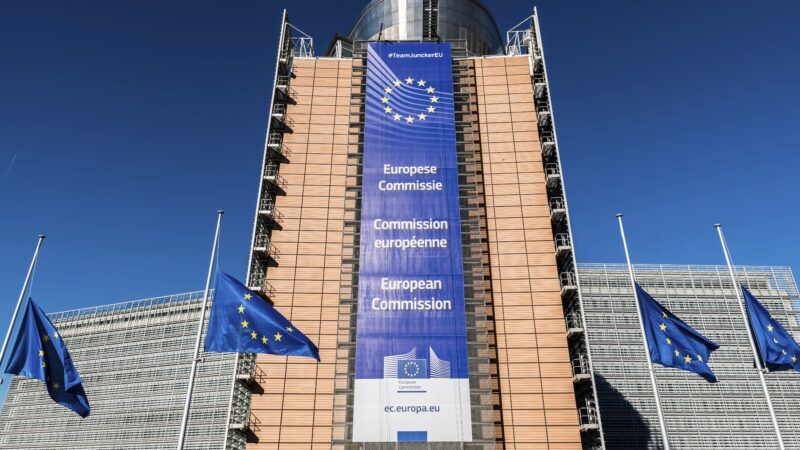European Commission Fines Meta for Serving Consumers
If advertisers don’t want to give data to Facebook Marketplace, they shouldn’t advertise on Facebook.

The European Commission recently fined Meta 798 million euros—about $841 million—for "tying" classified ads on Facebook Marketplace to social accounts on Facebook. The commission defines tying as requiring consumers who want to purchase one product to buy another as well. The commission has acknowledged that tying often gives consumers better products at lower cost, but it accuses Meta of "imposing unfair trading conditions on other online classified ads service providers."
Meta's punishment is yet another "huge antitrust fine against a leading American technology company," says Joseph Coniglio, director of antitrust and innovation at the Information Technology and Innovation Foundation.
The commission opened its investigation of Meta in June 2021, inquiring into the company's collection of Facebook user data, which allows it to target consumers on Marketplace. (Such data collection was responsible for more than 99 percent of Meta's $133 billion revenue in 2023, according to the company's investor report.) The commission frets that these data afford Facebook an "undue competitive advantage" in "the online classified ads sector."
The commission hypothesizes that Facebook may receive information on users' preferences from its competitors' advertisements. It is unclear what would be wrong with that, given that competitors pay Facebook to target advertisements to users based on data the platform already possesses. These competitors have also willingly signed on to Facebook's terms and conditions, which authorize the company "to use ads-related data derived from competitors for the benefit of Facebook Marketplace"—a fact the commission itself acknowledges.
Jennifer Huddleston, a senior fellow in technology policy at the Cato Institute, notes that tying has allowed users to have a more personalized experience on Facebook Marketplace based on their interests and interactions on Facebook. To the extent that competitors lose market share to Facebook Marketplace, they do so because the latter better serves consumers.
In any event, those competitors are generally doing fine. Dirk Auer, director of competition policy at the International Center of Law and Economics, points out that each classified ad service provider has different product segments and different means of accessing users. Thanks to this differentiation, Auer says, "rivals have thrived…while Facebook's marketplace remains a secondary player."
Auer wonders why the commission has prosecuted "this shaky case of limited policy importance." One possible answer: The commission's antitrust fines are paid into the general European Union (E.U.) budget. As the commission notes, "Member States' contributions to the E.U. budget for the following year are reduced accordingly."
Here's a better idea: Rather than attacking American firms that benefit consumers, the commission should be friendlier to innovation and competition. If Europe would embrace pro-growth policies instead of expropriating the wealth of American firms, maybe the E.U. could close the $20,000 gap in gross domestic product per capita between itself and the United States.


Show Comments (16)